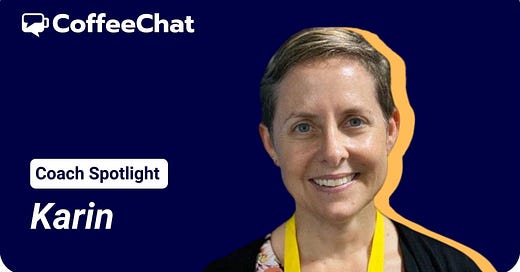✨ Coach Spotlight: Karin
Karin is a Coach based in Mauritius. She uses the Co-Active Coaching methodology alongside EQ and Enneagram tools with both external clients as well as in her role at DHL as Head of their Middle East Africa Accounting Competency Center (MACC) in Mauritius.
What motivated you to become a coach?
Since a young age I had a strong drive to help people. Gradually I learnt that I had a choice between helping and empowering people around me. The art of coaching appealed to me since it encompass skills which allows you to unlock your client’s innate potential up to the point where they are able to solve their own problems. It reminds me of the parable of teaching people to fish rather than providing them with fish.
What was one of your biggest learnings while training to become a coach?
In the Co-Active coaching world we refer to our clients as being NCRW. The acronym stands for Naturally Creative, Resourceful, and Whole. I adopted this philosophy not only for my clients but in general as a perspective to approach colleagues, friends, loved ones.
How do you distinguish between coaching team members vs external clients?
The same powerful questions will come into play, however the alliance and direction of coaching will vary slightly. When coaching team members, goal setting might have clearer correlation with Company visions, goals as well as development needs. External clients bring their own goals which is completely independent.
What do you think prevents more professionals from seeking out their own coach?
I believe it’s a close call between being too operationally involved, busy, and not necessarily realizing the strategic importance of having an independent opinion on challenges. It could also be pride that serves as a barrier. Generally, as people mature and start looking for meaning in their lives they will turn towards religion or look for advise or support outside. Major challenges often also serve as a catapult into coaching needs.
What are the motivating factors for a company to adopt and promote the use of dedicated coaches?
In my humble opinion, 21st century leaders should be equipped with basic coaching skills as a minimum. It’s tremendously beneficial for solution finding, team or one-on-one meetings. The rational for having a dedicated coach would greatly benefit the trust between the coach and coachee. Without trust, coaching relationships may not have the expected impact.



